
Dental emergencies can be incredibly difficult to handle due to their unexpected nature. By having a trusted emergency dentist that you can call, like Dr. Upton, you’ll be able to act quickly in the moment and reduce the amount of damage that your smile sustains. With our phone number on-hand, you’ll have direct access to our friendly and caring team of professionals to walk you through first-aid guidance and schedule an appointment for you as soon as possible for emergency dentistry.

You may understandably be in shock when a dental emergency occurs, but it’s important to take action as quickly as possible to get the care you need. Give our office a call as soon as you can. Our team will work to resolve your emergency by following these steps:
It’s hard to give a single definition that perfectly describes every type of dental emergency that you might experience. Please call our team if you notice anything wrong in your mouth; we can help you figure out how urgent the issue truly is. Below are some particularly common dental emergencies that many people will have to deal with at some point in their lives.

Before we can determine how much your emergency appointment will cost, we’ll need to diagnose the issue at hand. When you first arrive at our dental office, we’ll take X-rays and conduct a thorough examination of your teeth and gums. Once we know what the issue is, we’ll walk you through all of your treatment options and discuss pricing with you. If you need any help navigating your benefits or don’t have dental insurance and are interested in our membership plan, don’t hesitate to ask one of our friendly team members for more information!

The reason we can’t provide you with an exact number or even a general price range is that every dental emergency is different! For example, if one patient visits us because they knocked out a tooth and the next visits us because they’re experiencing persistent dental sensitivity, we won’t intervene with the same restorative care. Instead, we will take detailed X-rays and conduct a thorough oral exam to get a picture of what’s going on, pinpoint the root of the problem, and determine the best way to intervene.
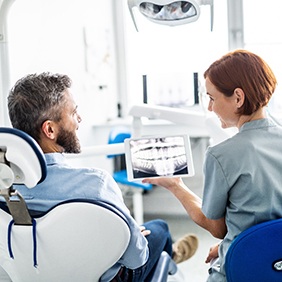
If you have dental insurance, it’s worth reading through the fine print on your plan to see what your provider covers. After all, they may cover the cost of your emergency exam or upwards of 80% of the cost of the restorative care needed! This can lower your out-of-pocket expenses significantly, making visiting our emergency dentist more affordable. Of course, if you’re having a hard time figuring out what your provider does and doesn’t cover, then let us know – we can help!
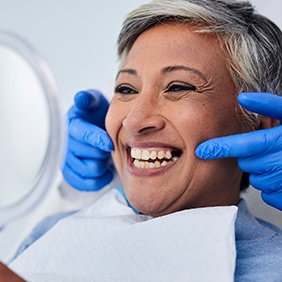
If you’re uninsured, then our team will review the other financial solutions available to you. The first is our Dental Savings Plan. When you join, you’ll enjoy significant savings on preventive dentistry as well as restorative treatments, like dental crowns and bridges. We also welcome flexible financing through CareCredit, which allows you to break down the cost of your treatment into smaller, more manageable chunks.

Of course, accidents sometimes happen. With that said, there are best practices you can implement to help protect your teeth and gums from harm. A few examples include brushing twice a day, getting a checkup and cleaning biannually, wearing a mouthguard during sports, and quitting unhealthy dental habits, like smoking. If you implement these into your routine, you’re significantly less likely to experience a serious dental injury.
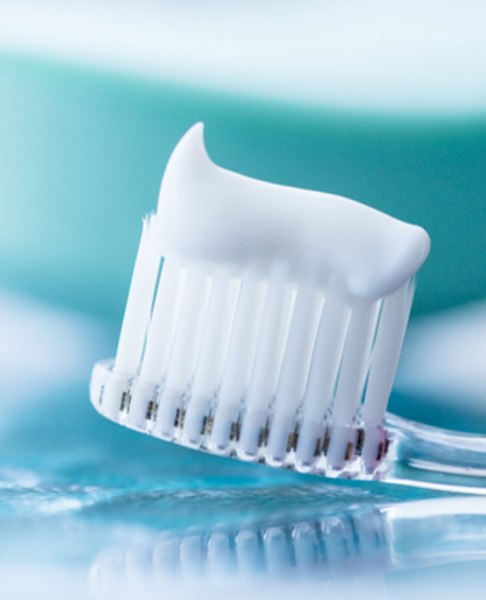
Sadly, it’s impossible to completely prevent oral accidents from happening. Before you let that discourage you, there is some good news: you can reduce your risk of experiencing one. With this in mind, read on for a few tips we give our patients on how to protect their smiles from harm!
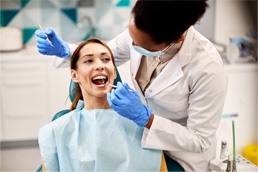
There is a common misconception that you only need to visit the dentist when your teeth or gums hurt. That’s not the case. In fact, that’s a recipe for a dental emergency! At your biannual visits, Dr. Upton conducts a thorough exam to catch oral health problems before they require same-day treatment. Plus, the cleaning portion of your visit is dedicated to preventing decay or an infection from developing by removing built-up plaque and tartar.

Taking care of your smile at home requires a commitment to brushing, flossing, and rinsing with mouthwash. However, you also need to make sure you’re using the right tools, like a fluoridated toothpaste and antimicrobial mouthwash. Additionally, the American Dental Association recommends getting a new toothbrush every quarter. That way, you can protect your teeth and gums from harm between visits.

There are a few things you should keep in mind when it comes to your diet, starting with keeping your consumption of added sugar to a minimum to help prevent cavities. We also recommend drinking plenty of water throughout the day to prevent dry mouth, remove food particles from your teeth, and stay hydrated. Lastly, do your best to add nutrient-dense foods to each meal. This will help give your body the nutrients it needs to keep your teeth and gums healthy.
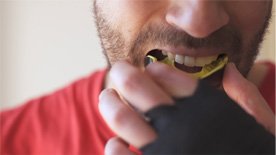
With roughly five million teeth knocked out each year due to sports-related accidents, it’s so important that you wear a mouthguard, even if you participate in a non-contact sport. This dental device is also effective when it comes to protecting your teeth from premature wear and tear. So, if you clench your teeth throughout the day or grind your teeth at night, don’t hesitate to schedule an appointment – we’ll get to work on having a custom mouthguard made.
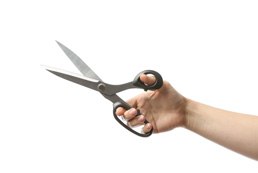
In short, you should never use your teeth to open packages, rip off price tags, hold your keys, etc. Although your chompers are strong, they aren’t designed to withstand that pressure. Plus, you are introducing your mouth (and your digestive tract) to countless bacteria in the process. So, don’t use your teeth as tools, even if it seems convenient at the time to do so.
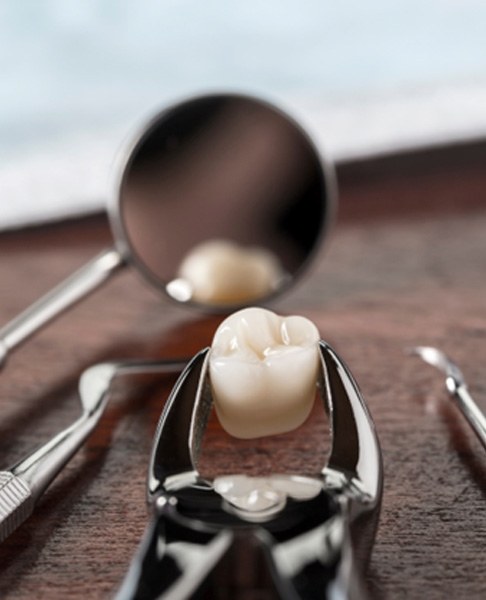
Dr. Upton tries to preserve the natural structure of your smile, which means we’ll never suggest removing a tooth unless we believe it’s absolutely necessary to maintain good oral health. If you do need an extraction, we’ll walk you through the process beforehand so you can understand why we’re suggesting this treatment and how it will help restore your smile. We offer several different procedures to replace missing teeth as well, so you won’t have to live with a gap in your mouth for any longer than necessary.
If you’re in pain, you might think that the ER is the best place to go. However, the American Dental Association recently reported that a whopping 1.65 million ER visits could receive dental clinic care. The best thing to do in a dental emergency is to assess your symptoms. If you’re having trouble breathing, you’re having difficulty swallowing, or you’re experiencing another potentially life-threatening symptom, then you should seek medical attention at the ER. If you aren’t, then you should call us instead.
Temporary restorations are designed to last long enough for the dental lab to make your final one, which is typically a week or so. So, even if it seems secure, you shouldn’t wait longer than necessary to replace it.
It’s possible. However, it could also be the result of a small crack or a large cavity – we won’t know until you come in for an exam! We recommend scheduling one if you experience any abnormal dental symptoms, including persistent tooth pain.
Similar to the previous answer, we won’t know the cause until we complete an exam. If we find tooth decay, gum disease, or another serious dental problem, then we will intervene with the necessary restorative care to see if that is the source. If we don’t find anything concerning at your appointment, then it may be due to your diet or oral hygiene regimen. Fortunately, we can give you a few pointers in those departments as well!
Although we don’t recommend sleeping with a toothache as a means to try and avoid the issue, we know that it’s not always possible to come into our office the very same day for treatment. In this case, you need to know how to alleviate your discomfort long enough to sleep soundly. We recommend sticking to soft foods that aren’t acidic or sugary during dinner and completing your oral hygiene routine as usual. About 30 minutes before bed, take an OTC pain reliever and prop yourself up on a few pillows so your blood doesn’t rush to your head while you sleep.
No, chipped teeth can’t heal. When you come in for your exam, we will see if the tooth is at-risk for breaking further or developing an infection. If it isn’t, then you have the option to leave it as is. Or, you can restore the missing structure of your tooth with cosmetic dental bonding or a veneer.
I Need a Checkup & Cleaning I Have a Cavity or Broken Tooth I am Missing One or More Teeth I am Worried About Bleeding Gums I Want to Enhance My Smile I Want a Straighter Smile I am Afraid of Dental Offices View All Our Services